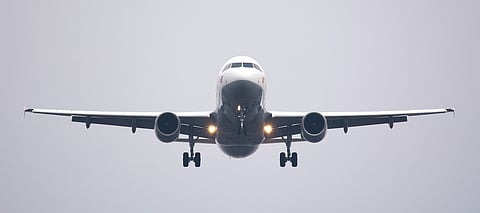

NEW DELHI: India's aviation sector is in sharp ascent, driven by robust government support and aggressive expansion by airlines such as IndiGo and Air India, said Willie Walsh, Director General of the International Air Transport Association (IATA).
Speaking at the IATA Annual General Meeting here on Monday, Walsh praised India’s proactive approach. “The aviation sector has been accorded much priority in India with investments by the government as well as airlines like IndiGo and Air India,” he noted, contrasting it with the cap of 32 million passengers at Dublin Airport. “Such artificial caps like that being in Dublin should not be enforced.”
IndiGo CEO Pieter Elbers highlighted India’s integrated growth model, with second airports planned for Delhi and Mumbai. “Every rupee invested in aviation gives a return of Rs 3, every dollar gives three dollars in return. A single job created in aviation creates six jobs in other areas,” he said. Elbers added that India, now the world’s fourth-largest economy, is set to surpass Germany by 2027. “Aviation is an integral part of economic growth,” he said and urged for aster development of MRO (Maintenance, Repair and Overhaul) infrastructure.
On geopolitical tensions and closed airspace, Walsh said the sector remains adaptable. “When airspace is closed, airlines will quickly adapt and find alternative routes.” He raised concern over blocked airline funds in some countries. “The profit margins are just 3.7%, and no airlines can afford to have funds trapped in the hands of the government,” he warned.
Walsh cast doubt on the 2050 net-zero carbon goal. “Fuel companies are passing on the burden to airline companies... but are not adhering to the mandate,” he said.
IATA economist Marie Thomsen said that the sector earned $36 billion in 2024—just 3.7% margin—largely from passengers. Fuel remains the biggest cost, at 26%. “Each Middle East passenger brought in $27.2, versus just $1.3 in Africa,” she said, citing uneven growth.
'India creating infra at an unparalleled pace'
No other country in the world was creating infrastructure at the pace India was doing with nine airports and three metro rail networks being built every year, said Amitabh Kant, G20 Sherpa and former CEO of NITI Aayog.
Taking part in a panel discussion on ‘India: A case study in connectivity driving development’, Kant said this was in addition to 30 km of road and 12 km of rail network being built on a daily basis. “The country presently has 150 airports and it would go up to 400 airports in the future and this would connect three-fourths of the country.”
The demographic dividend was a big plus for India, he pointed out. “By 2040, India will have 30% of the skilled manpower in the world. It would become like what Japan was in the seventies. Top professionals in the hotel industry would emerge from India,” he said.
The tariffs imposed by the Trump administration and the conflicts across the globe were impacting the industry, Kant added.
Radhika Gupta, MD and CEO, Edelweiss Asset Management Limited, called for creating Region to Region connectivity and City to City connectivity. However, she cautioned against creating ghost airports like the ones in Pragyaraj and Ayodhya which were developed grandly for the Kumbh Mela but are not having much patronage presently.